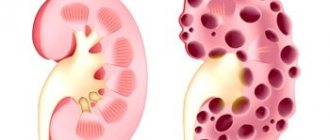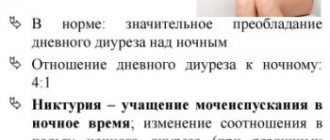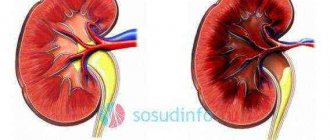How to prepare for the procedure
Once the doctor refers the patient to the transplant clinic, the general condition of the body is assessed by a team of doctors in many respects. It may be necessary to be examined for several months. Blood tests and x-rays are required. Research is being carried out on the possibility of rejection of foreign tissue, ECG, and all kinds of tests.
You can consider several transplant centers; take an interest in the statistics on this type of operation. You will be placed on a national waiting list. Placement will be based on a number of factors (kidney problem, severity of heart disease, etc.).
While you are waiting for a kidney, follow the prescribed diet and give up bad habits. Take all prescribed medications and tell your doctor about any changes in your condition. Make sure your medical team has the correct phone number so they can contact you immediately when ready for surgery.
More than 3,000 people need kidney transplantation in the Republic of Kazakhstan
In some cases, the cost of living is measured not even in days, but in hours. Patients continue to believe that their donor will be found and everything will be fine.
There are more and more Kazakhstanis in need of organ transplants. Over the past 4 months, the waiting list has increased by almost 300 patients. The queue hardly moves. Since 2020, doctors have performed 101 fewer operations. The reason is clear - there are not enough donors. In addition, the organ found may not always be suitable.
Adil Zhumagaliev, acting Director of the Republican Center for Coordination of Transplantation and High-Tech Medical Services:
— Our transplant coordinators are taking measures. Based on the results of the first quarter of this year, 27 potential donors were identified. Unfortunately, none of them took place. The reasons are - in 55 percent - refusal of relatives, in the remaining 45 - various medical contraindications.
Without these factors, several people would have found a second life. In the meantime, over 3,400 Kazakhstanis are waiting for their donor. Of these, more than half hope to stay on hemodialysis and wait for a new kidney. 3039 people need this organ transplantation. One of them is sixteen-year-old Indira Baktiyarova.
For Zhanna Kamyspaeva, every daughter’s smile is a priceless gift. In 2012, doctors diagnosed her child with chronic renal failure. Every year she fades before her mother's eyes. Indira reflects her mood in her drawings. She dreams of connecting her life with creativity.
Indira Baktiyarova, in need of a kidney transplant:
— I like going to school and chatting with friends. I immediately forget myself, my mood lifts. I haven't thought about what I want to become yet. But I know that it will be connected with creativity. I dream of seeing the whole world, drawing its most beautiful places. I believe that I will be cured.
Together with Indira, Indira’s relatives and teachers do not lose faith in the long-awaited recovery.
Zhamilya Mukhambetali, teacher:
— A girl can write essays, speak her mind, with an unusual outlook. Perhaps because her illness has confined her to bed, she approaches everything with her own point of view. Never says an extra word. In general, the child is vulnerable and loves life. From her writings and answers, I always see that she really wants to live.
Indira has been on hemodialysis since she was 17. Her family fears that they could lose her at any moment. Most of the time she is depressed. Only the news about a donor found for her can bring Indira out of it, her mother is convinced. For now, this is the situation.
Zhanna Kamyspaeva, Indira’s mother:
— My kidney is not suitable for Indira. There is no cadaveric organ either. We went to Nur-Sultan every three months and took tests so that we could be put on the donor queue. No results yet. We have been waiting for a transplant for three years now.
According to experts, all that remains is to wait. If a donor is found among the patient’s close relatives, then the operation takes place without any particular difficulties. Otherwise, the outcome is not so favorable. We need to wait for a cadaveric donor. No one can say how long this may take. There is no quota allocated for such operations.
Adil Zhumagaliev, acting Director of the Republican Center for Coordination of Transplantation and High-Tech Medical Services:
- These are the regulations. If a person has chronic renal failure, he is sent for hemodialysis until a donor, or relatives, or a posthumous donor becomes available. There are no other options.
But there are still exceptions. The Ministry of Health has a commission on treatment abroad. It is her decision that determines whether the patient will be able to receive a quota. This is exactly the option that Indira’s family is counting on. The process stopped due to the introduction of quarantine in Nur-Sultan. Even before this, the capital’s Center for Motherhood and Childhood promised to conduct a repeat examination and convene a working commission for Indira. Now the relatives are waiting for the state of emergency in the country to be lifted. They also hope that the capital’s specialists will not forget about their promise. Meanwhile, Belarusian doctors have already agreed to operate on the girl. Their services alone will cost about 60 thousand euros, which is simply not available in an ordinary Kazakh family.
Authors: Kamilla Tastanbekova, Aisulu Makhmutova, Nurgali Mamurbaev
How does the procedure work?
The donor kidney is transported in cold salt water (a special salt solution) for 48 hours. During this time, you can have time to complete all the necessary tests to check compatibility.
If you are a kidney donor, the organ removal procedure will be performed under general anesthesia. A laparoscopic technique with a small incision will be used.
If you are a recipient (the one receiving a kidney), after you are under anesthesia, your doctor will make an incision in your lower abdomen. The arteries and veins of the new kidney are connected to the vessels in the pelvis. The ureter is attached to the bladder. The wound is sutured.
The entire operation time is 3 hours. People with diabetes can undergo a pancreas transplant immediately, then the operation time will increase to 6 hours.
Indications for kidney transplant
The main and most common indication for an operation such as kidney transplantation is end-stage renal failure, both acute and chronic.
Various reasons lead to such defeat:
- severe dehydration or significant blood loss;
- various kidney infections;
- arterial hypertension;
- autoimmune diseases such as Volzhanka;
- diabetes;
- polycystic kidney disease and its various defects, tumors;
- atherosclerosis of the blood vessels of the kidneys;
- as well as kidney stones.
Track an international parcel in Kazakhstan
It is very easy to track your parcel after arriving in Kazakhstan using a universal postal tracker, just enter the tracking number in the search field above.
KazPost is unique in that it allows you to track unregistered mail items of the type U..CN, U..GE, and so on. All other post offices in the world do not scan such items within the country; KazPost, however, continues to scan unregistered items at intermediate points and thus allows you to trace the full path of the parcel, right up to its arrival at the delivery office.
Belarus is ahead of Ukraine
Belarus is the only country in the post-Soviet space that is among the top 30 countries for the development of transplantation. There is a presumption of consent: a deceased person can automatically become a donor. Despite this, doctors are still coordinating this point with his relatives, although this is not required by law. Also, during life, a person can write a voluntary refusal to transfer his organs in the event of death.
The second country where Ukrainians go en masse for transplant operations is India, where the availability of donor organs exceeds their own needs. A heart transplant operation there costs $100 thousand, the expenses are covered by the state.
In Ukraine, unlike Belarus, on the contrary, the presumption of disagreement applies. That is, every Ukrainian automatically does not agree to donation if he did not write a corresponding statement during his lifetime or if his relatives oppose it after his death. Although one person can theoretically be a donor for 8 people, whose life can be extended by another 10-20 years.
“I support the introduction of a presumption of consent, and I think that in a few years we will be able to do this. It is extremely important now to popularize donation because it truly saves lives. There is no “black transplant”; it is a transparent process that involves up to a hundred people. But people will trust us only after we show transparency in the process. The absence of a presumption of consent does not prevent transplantation; the main thing is to fully launch the system, which is what we are doing,” added Oksana Dmitrieva.
“Countries where there is a presumption of consent are world leaders in the field of transplantation. In addition to Belarus, these are also Austria and Spain. In Ukraine, there is a myth about the so-called black transplantologists. Although these are invented nonsense of poorly educated people. Dozens take part in such operations. About 30 people worked in my operating room during the heart transplant. These are two teams - immunologists, an anesthesiologist, and so on. This is a very difficult operation, the pinnacle of medical science. In addition, after such an operation, patients need to be looked after, tests done, and rejection treated when it appears. It is impossible to do all this secretly, and besides, such an operation requires very powerful resuscitation. There is definitely no black transplantology in Ukraine,” assured Boris Todurov.
By the way, a few weeks earlier, the posthumous donor for four Ukrainians was a guy who, having been in an accident, received injuries incompatible with life.
Why was brain death not declared earlier?
Declaration of brain death could previously be carried out exclusively by a council of doctors from one hospital; the law prohibited the involvement of specialists from other hospitals. If this is a district hospital, in which, for example, there are young specialists without at least 5 years of experience, and there is no neurosurgeon or neurologist, it was impossible to determine brain death. We have changed the law, and now it is possible to attract specialists from other healthcare institutions; you can take the necessary equipment (for example, a gas analyzer, which is available in a small number of hospitals) from other hospitals. Thus, we create the prerequisites for diagnosing brain death in any hospital where there is an intensive care unit. The next step is to develop regulatory tools and incentives to make this an established practice.
Over-regulation of facilities that can perform transplant operations has also been removed. In the previous version of the law, it was determined that those healthcare institutions that have the appropriate license can perform transplantation, and this requirement has been retained. But that’s not all - previously it was necessary to get into a separate list of institutions approved by the Ministry of Health that have a license for transplantation. Now, in order to perform transplant operations, a healthcare institution must have a specialty in “transplantology” in its license for medical practice - this is enough. Also, in order to simply transport anatomical material, a license for medical practice was required, since transportation was defined as a “medical service”; now the Law does not prohibit the involvement of, for example, aviation in transportation.
The most difficult operations
And what organ transplant operations can be called the most difficult? Often complex operations fall under this definition. The complex involves transplanting two or more organs at once, for example, liver and kidney transplantation. Such cases do happen, but they are not always successful. After all, the most important stage is not the surgical intervention itself, but the rehabilitation period. That is why it is impossible to accurately determine which operation will be considered the most difficult. In some cases, it happens that after transplantation the organ does not take root. Unfortunately, in such a situation, it can only be removed. This can happen even with the highest percentage of compatibility. For example, if a kidney transplant has been performed, the patient will be returned to dialysis and a suitable program while awaiting a suitable donor. Likewise with the heart, in such cases there are no other solutions.
Such surgical interventions are carried out mainly in Taraz, but there was also a similar experience in Astana, but these were isolated cases. If you are a foreigner and want to carry out a similar operation in Kazakhstan, then it will be carried out for a fee and only if you have your own donor. The state pays for such services exclusively for Kazakhstanis.










